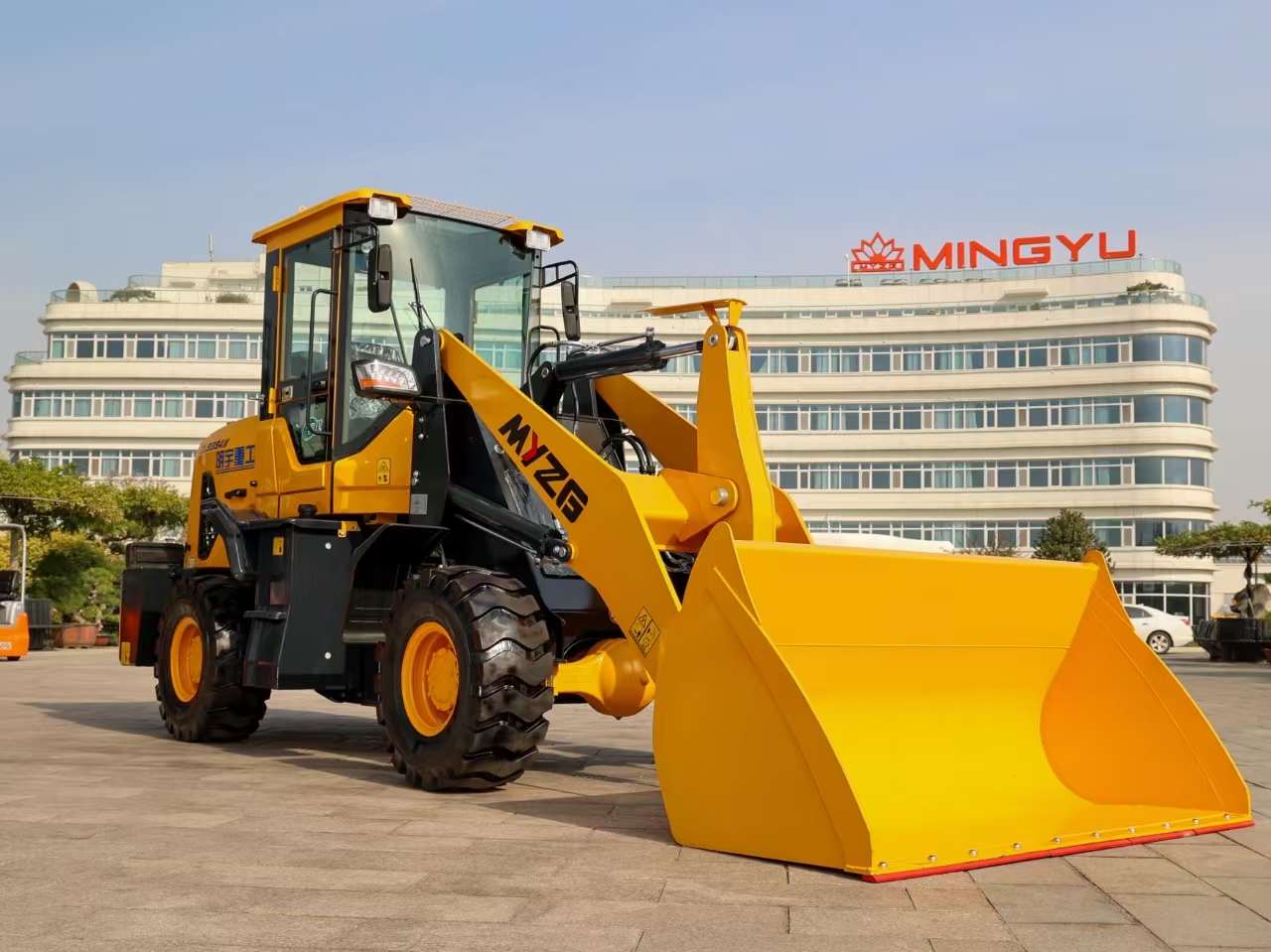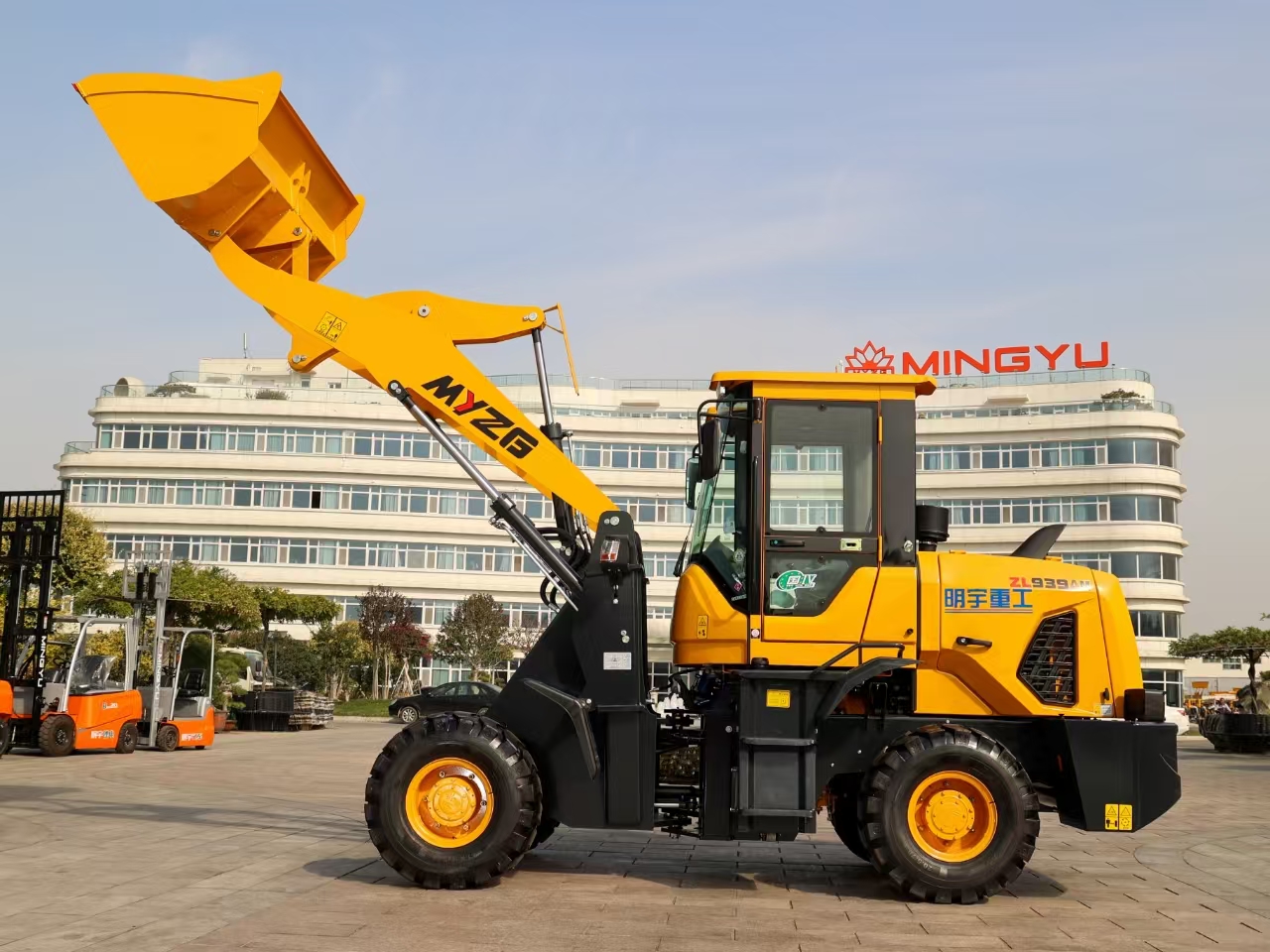Introduction
A wheel loader operator is a skilled professional who operates heavy machinery to move materials, primarily earth and construction debris. They are essential to various industries, including construction, mining, agriculture, and waste management. Wheel loader operators are responsible for the safe and efficient operation of these powerful machines, ensuring productivity and minimizing risks.

Key Responsibilities of a Wheel Loader Operator
· Operating the Wheel Loader:
o Starting and stopping the machine
o Controlling the hydraulic system to operate the bucket and loader arm
o Maneuvering the wheel loader in tight spaces and on uneven terrain
· Performing Pre-Operational Checks:
o Inspecting the machine for any damage or defects
o Checking fluid levels (hydraulic fluid, engine oil, coolant)
o Ensuring proper tire pressure
o Verifying the functionality of safety devices (e.g., seatbelt, horn, lights)
· Loading and Unloading Materials:
o Scooping up materials (dirt, gravel, rocks, etc.) with the bucket
o Transporting materials to designated areas
o Dumping materials accurately
· Grading and Leveling Ground Surfaces:
o Using the bucket to shape and smooth the ground
o Creating slopes and embankments
o Preparing sites for construction
· Maintaining the Wheel Loader:
o Performing routine maintenance tasks (e.g., greasing, oil changes)
o Reporting any mechanical issues to supervisors
o Keeping the machine clean and organized
Essential Skills and Qualifications
To become a successful wheel loader operator, individuals must possess a combination of physical and mental abilities. Here are some of the essential skills and qualifications:
· Physical Fitness:
o Strength to operate heavy machinery
o Stamina to endure long hours of work
o Dexterity to control the machine's levers and pedals
· Mental Acuity:
o Spatial awareness to judge distances and clearances
o Problem-solving skills to address unexpected challenges
o Attention to detail to perform pre-operational checks and identify potential hazards
· Valid Operator's License:
o A valid license specific to operating heavy machinery, such as a wheel loader
· Safety Awareness:
o Knowledge of safety regulations and procedures
o Ability to recognize and mitigate potential risks
· Communication Skills:
o Effective communication with supervisors and other team members
o Ability to follow instructions and provide feedback
By possessing these skills and qualifications, wheel loader operators can contribute to efficient and safe operations on construction sites and other work environments.
Training and Certification
To ensure the safety and efficiency of wheel loader operators, formal training and certification programs are essential. These programs cover various aspects of wheel loader operation, including:
· Basic Operator Training:
o Introduction to wheel loader components and controls
o Safe operating procedures
o Pre-operational checks
o Basic maintenance tasks
· Advanced Operator Training:
o Advanced maneuvering techniques
o Working in challenging conditions (e.g., steep slopes, muddy terrain)
o Material handling techniques
o Emergency procedures
· Certification Programs:
o Obtaining a formal certification from recognized training institutions
o Demonstrating proficiency in operating a wheel loader
o Adhering to industry standards and regulations
By completing these training programs and obtaining certifications, wheel loader operators can enhance their skills and qualifications, making them more valuable assets to their employers.

Challenges and Risks
While wheel loader operation offers rewarding career opportunities, it also presents several challenges and risks:
· Physical Demands:
o Prolonged sitting and exposure to vibrations can lead to musculoskeletal disorders.
o Working in various weather conditions can be physically taxing.
· Hazardous Environments:
o Exposure to noise pollution, dust, and fumes can affect respiratory health.
o Working on construction sites can expose operators to falling objects and other hazards.
· Risk of Accidents:
o Improper operation, mechanical failures, and human error can lead to accidents, injuries, and property damage.
o Collisions with other vehicles or objects can occur, especially in confined spaces.
To mitigate these risks, wheel loader operators must prioritize safety, wear appropriate personal protective equipment, and adhere to strict safety guidelines. Regular maintenance of the machine and timely inspections can also help prevent accidents.
Future Outlook for Wheel Loader Operators
The future of wheel loader operators is intertwined with the evolving construction industry and technological advancements. While automation and artificial intelligence are making inroads into various industries, the role of skilled operators remains crucial.
Impact of Automation and Technology:
o Autonomous Machines: While fully autonomous wheel loaders are still in development, advancements in automation technology may lead to increased automation in certain tasks, such as loading and unloading materials.
o Teleoperation: Remote-controlled wheel loaders can be operated from a safe distance, reducing operator exposure to hazardous environments.
o Advanced Operator Assistance Systems: These systems can provide real-time feedback, alerts, and guidance to operators, enhancing safety and efficiency.
Evolving Job Roles and Responsibilities:
o Increased Focus on Technology: Operators will need to adapt to new technologies and learn to operate advanced machines.
o Enhanced Safety Protocols: As technology advances, safety standards will become more stringent, requiring operators to stay updated on the latest regulations.
o Data Analysis and Monitoring: Operators may be involved in collecting and analyzing data to optimize machine performance and efficiency.
Importance of Continuous Learning and Upskilling:
o Staying Updated: Operators must continuously update their skills to keep pace with technological advancements.
o Specialized Training: Specialized training in areas like automation, teleoperation, and data analysis can enhance career prospects.
o Certification and Licensing: Obtaining relevant certifications can validate skills and increase employability.
In conclusion, while technological advancements may reshape the role of wheel loader operators, the demand for skilled professionals who can operate these machines safely and efficiently will persist. By embracing continuous learning, adapting to technological changes, and prioritizing safety, wheel loader operators can secure a promising future in the construction industry.
Conclusion
Wheel loader operators play a vital role in various industries, contributing to infrastructure development, mining operations, and material handling. Their skills and expertise are essential for efficient and safe operations. As technology continues to evolve, it is crucial for operators to adapt and acquire new skills to remain competitive in the industry. By prioritizing safety, embracing technological advancements, and pursuing continuous learning, wheel loader operators can secure a promising future in the construction and related sectors.
Post time:Nov.06.2024
